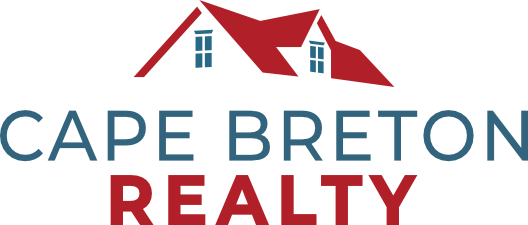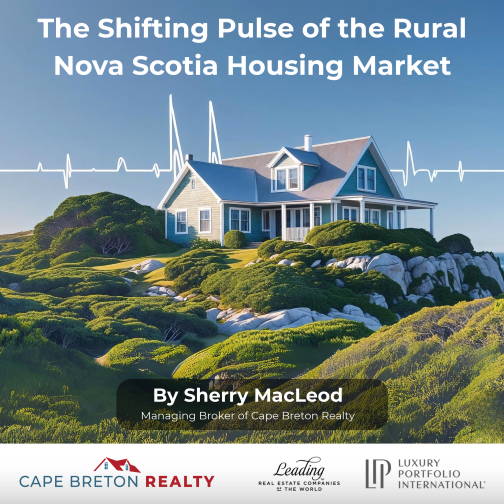By Sherry MacLeod
Managing Broker of Cape Breton Realty | https://capebretonrealty.com
While much of Canada has enjoyed a temporary
reprieve in the form of a buyer-friendly housing market over
the past few months, signs are pointing to an imminent
shift. According to mortgage expert Penelope Graham of
Ratehub.ca, fixed mortgage rates are rising, variable rates
appear to be stabilizing, and the housing market — once
cooling — may be on the verge of heating up again.
June’s inflation numbers crept up to 1.9%, and job
growth appears stable, giving the Bank of Canada little
reason to proceed with further rate cuts. In fact, the five-
year bond yields — the metric used to determine fixed
mortgage rates — have reached a six-month high in the
3% range. This increase has already triggered rate hikes
from lenders, with more potentially on the horizon.
What does this mean for us here in rural Nova
Scotia and on Cape Breton Island?
We’re seeing a tale of two markets. While some regions
— like Halifax Regional Municipality and Cape Breton
Regional Municipality — experienced continued strength
earlier this year, a slowdown is becoming more noticeable,
particularly as the number of foreign students declines.
This shift has started to ease the pressure on the rental
market, with more units available and prices beginning to
soften. That, in turn, may lead to increased inventory in
the resale market as former investment properties become
less viable for landlords.
In the rural areas, we are noticing a different kind of
cooling — one shaped not just by interest rates or market
trends, but by policy. The 10% deed transfer tax for out-
of-province buyers has had a chilling effect on rural real
estate. Daily, our offices speak to potential buyers who
reconsider — and often decide to invest in another province
rather than shoulder that additional burden. Nova Scotia’s
once-strong appeal to non-resident cottage buyers is
decreasing.
The combination of policy and economic uncertainty is
reducing the number of lifestyle and seasonal buyers — a
group that, for over 30 years, has been a driving force in
the Cape Breton economy. This shift won’t just impact the
real estate market; it will ripple through our communities,
affecting sales in restaurants, grocery stores, hardware
shops, and countless service-based businesses that have
long relied on the seasonal influx of non-resident property
owners and cottage-goers.
That said, it’s not all doom and gloom. We still see people
relocating here for a better quality of life — those who
value the quiet, the scenery, and the sense of community.
Retirees and remote workers continue to find value and
opportunity in our region. But the market is shifting: there
are fewer recreational buyers and more full-time residents,
and that brings different pressures and dynamics to the
table.
So what’s next?
Expect more inventory. With rates rising and market
sentiment shifting, homeowners and landlords may look to
sell before affordability tightens further. At the same time,
the pool of buyers — particularly from out of province —
may shrink if current policies remain in place.
We’re entering a new phase in rural real estate — one
marked by local buyers, realistic pricing, and a changing
demographic of sellers. It’s a good time to be informed,
whether you’re planning to buy, sell, or just keep a close
eye on how our communities are evolving.


